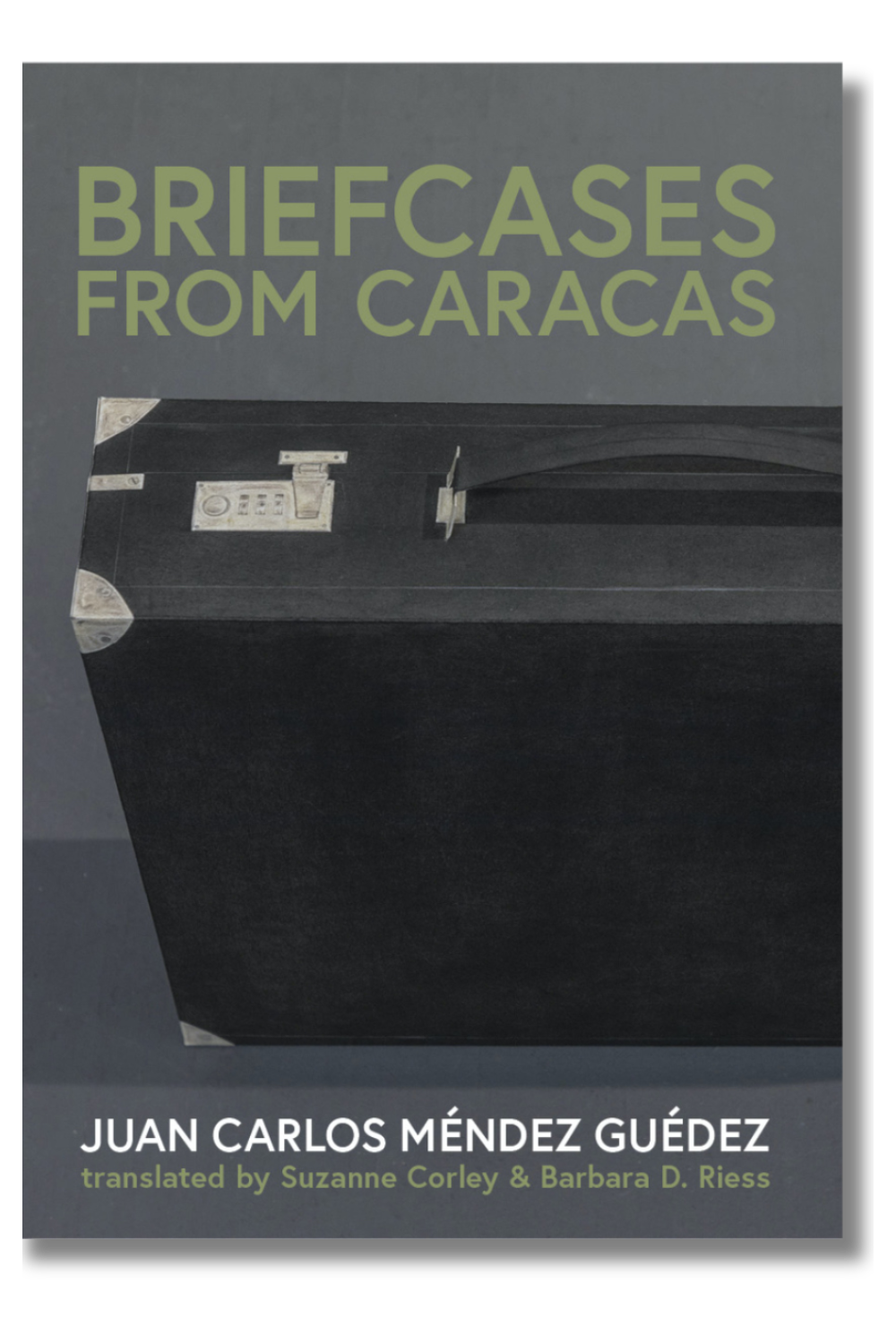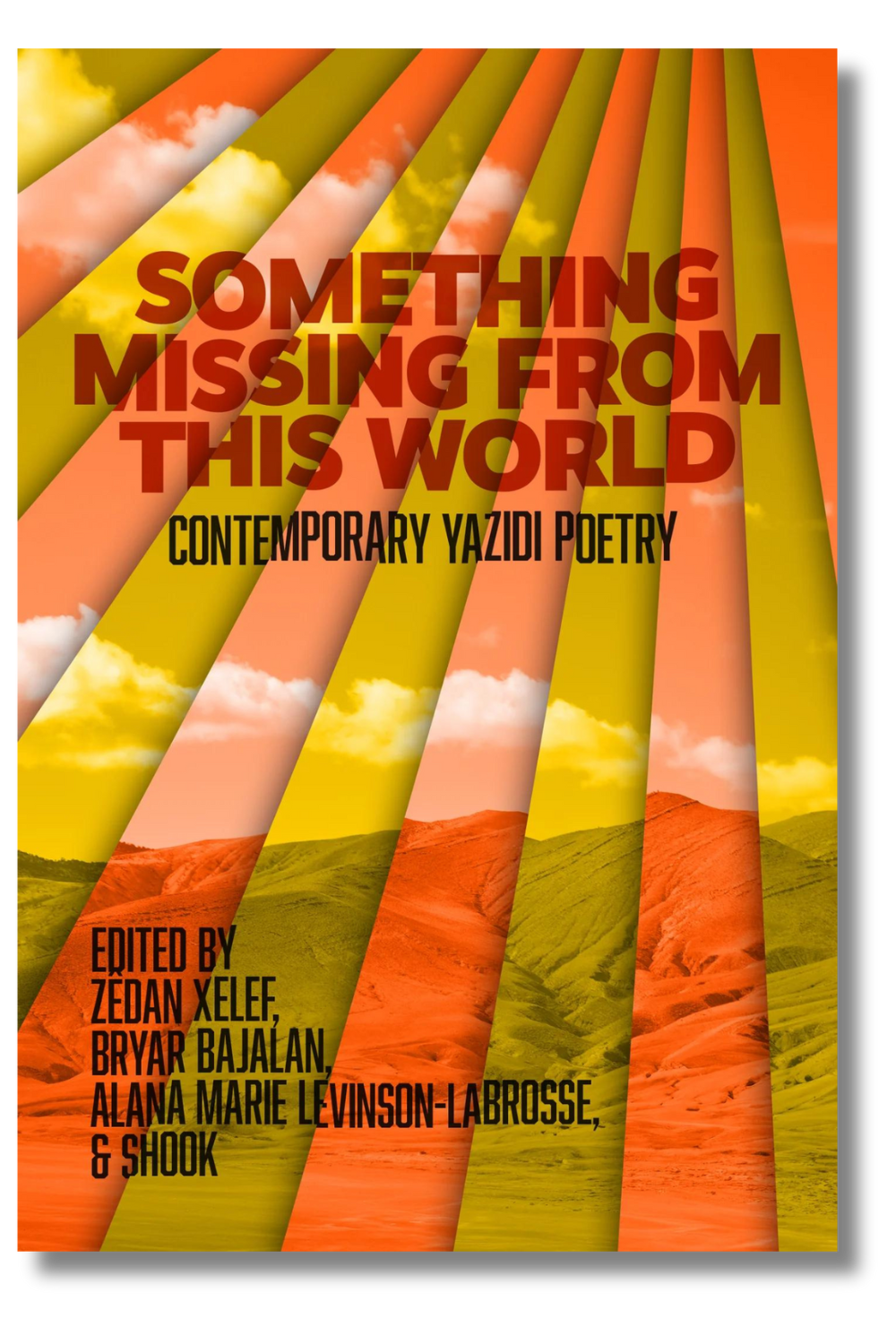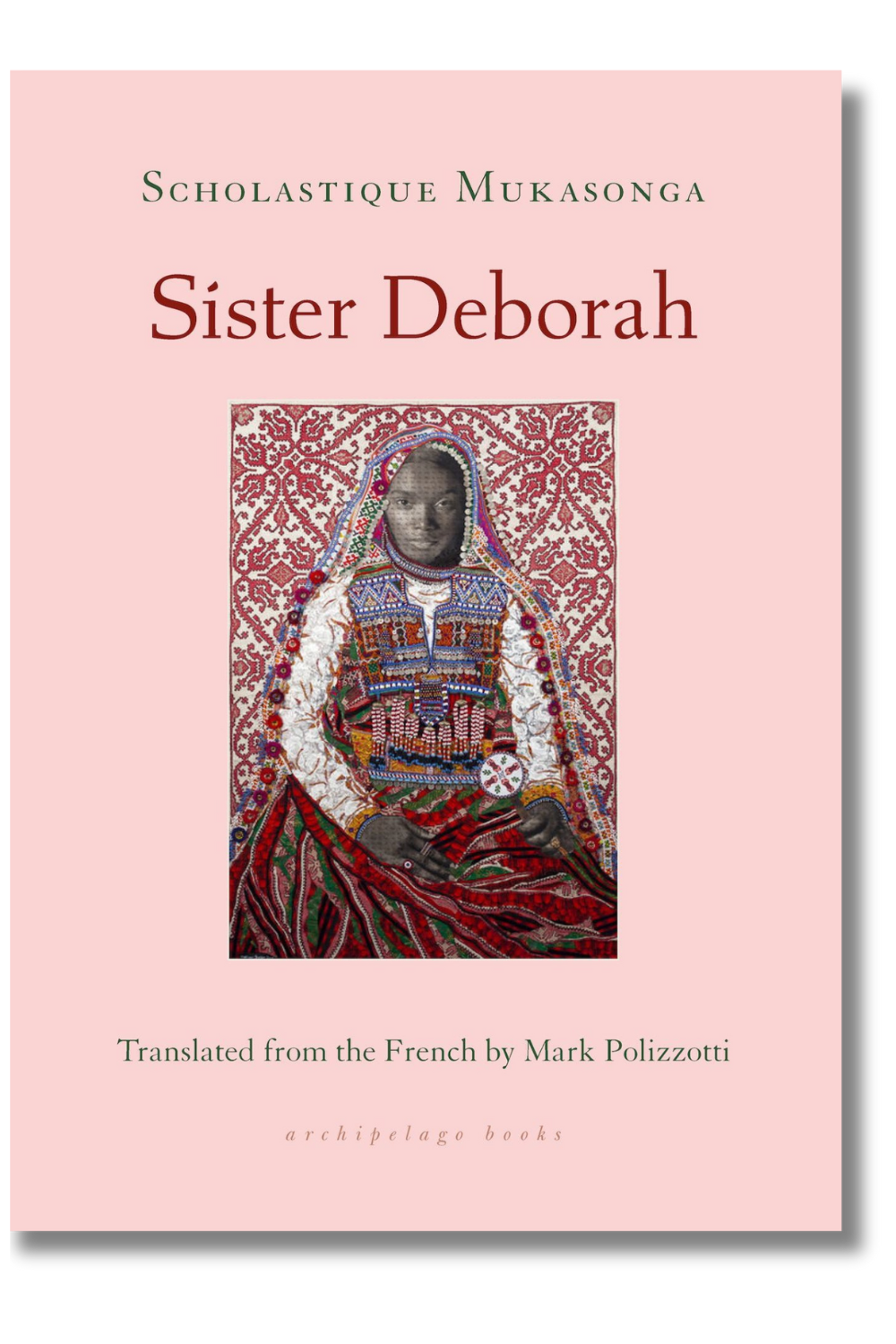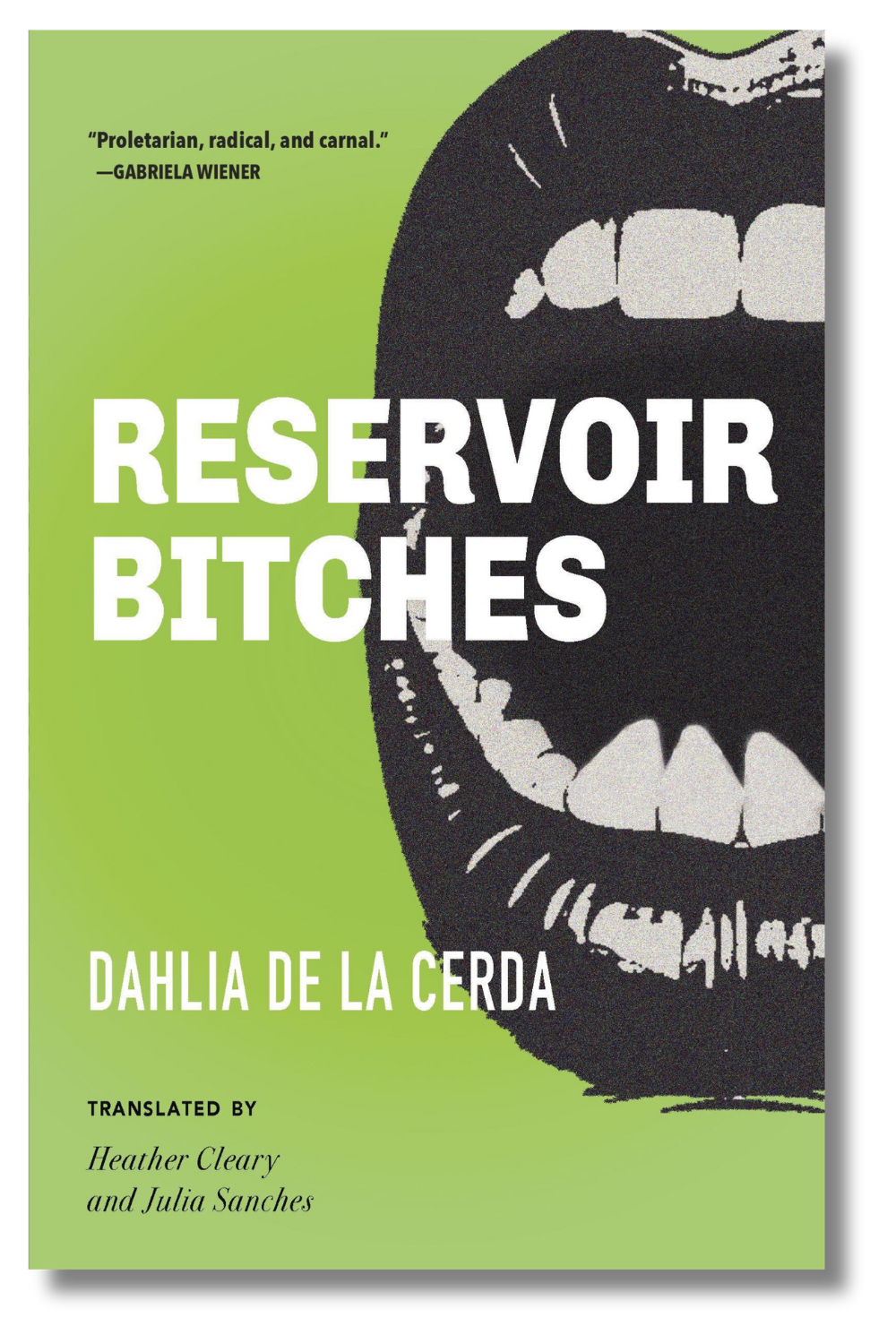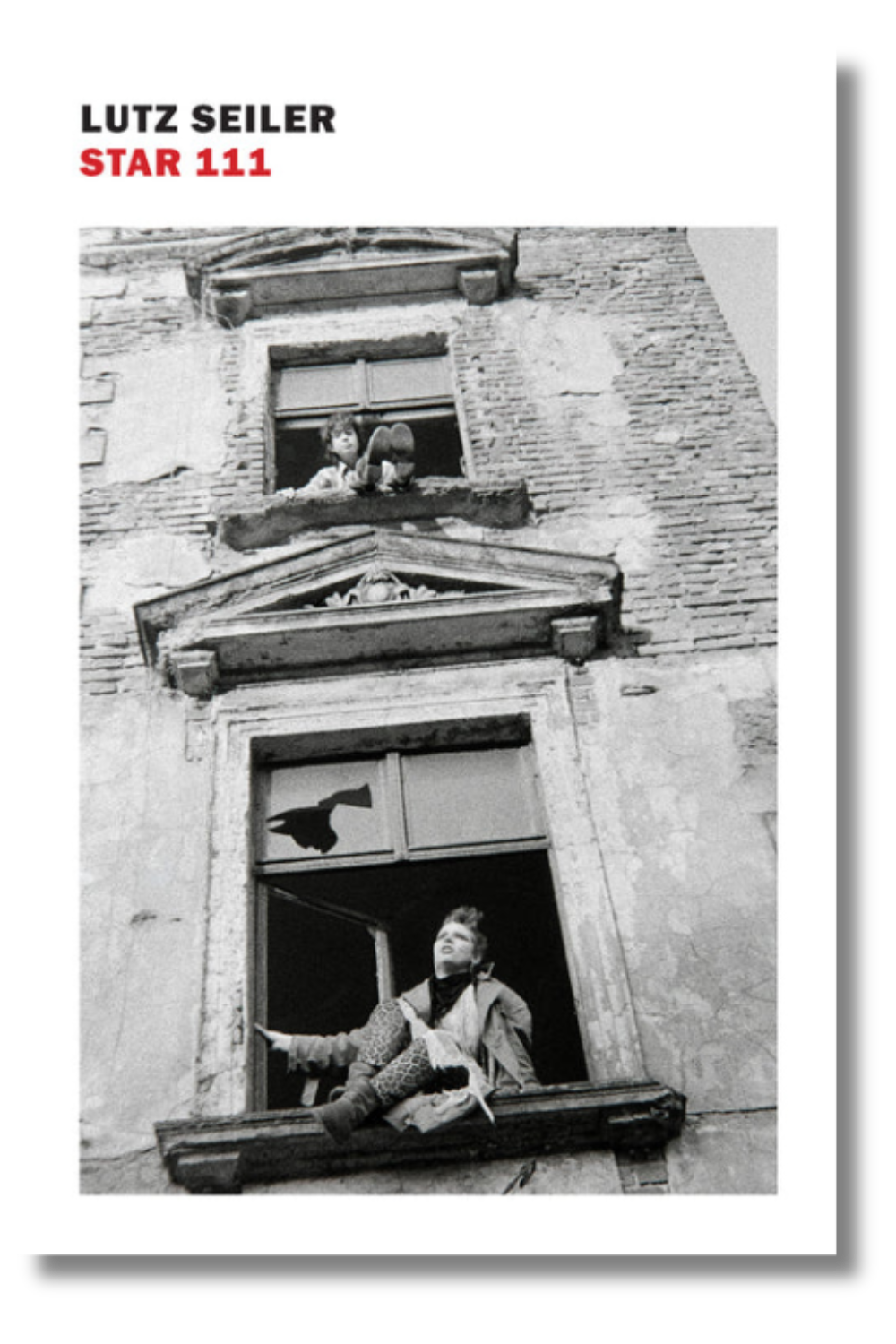From Black Square Editions | Briefcases From Caracas by Juan Carlos Méndez Guédez, translated from the Spanish by Barbara Riess and Suzanne Corley | Fiction | 482 pages | ISBN 9798986036977 | US$30.00
What the publisher says: “Inspired by a real-life event of undeclared cash carried from Venezuela to Argentina in 2007, Briefcases from Caracas is an extraordinarily literary blend of the classic noir novel and international political thriller, the first of this prolific author’s novels to appear in English.”
What Guillermo Parra at Venepoetics says: “The Caracas of Los maletines is a rude and ill-tempered city where one minute you’re alive and the next you’re dead. The perfect setting for a crime novel where violence, stray bullets, brutality, abuse, and tense situations are always a threat, already there.”
What I say: There’s plenty of political intrigue—and no small amount of political commentary—to be found in Briefcases From Caracas, which finds multiple compelling ways to skewer and deflate espionage novel tropes. But there’s also a wry quality to the narration, as when readers learn early on that “Marjorie and Donizetti had perpetrated some of the worst fucks carried out in Caracas since 1567. What went on between them was disgraceful, inept, and deceitful, all of it.” Throw in allusions to the work of writers like Alejo Carpentier and Stanisław Lem—and some mouth-watering descriptions of food—and you have a thoroughly engrossing read.
From Phoneme Media | Something Missing from This World: Contemporary Yazidi Poetry by editors Zêdan Xelef, Bryar Bajalan, Alana Marie Levinson-LaBrosse, and Shook, translated from the Arabic and Kurmanji by the editors | Poetry | 164 pages | ISBN 9781646053476 | US$19.95
What the publisher says: “Ten years have passed since 2014 and the seventy-fourth genocide of the Yazidis, a people who have faced ongoing persecution, displacement, and ethnic cleansing from their ancestral lands in the Kurdish regions. In the wake of this genocidal violence, new poetic voices have emerged in university campuses and IDP camps along the borders of Syria, Iraq, and Turkey, as well as from across the Yazidi diaspora.”
What I say: The first sentence of the editors’ introduction to this anthology immediately grabs your attention: “This anthology gathers poetry written by eleven Yazidi poets who survived the genocide that began on August 3rd, 2014.” But the collection also reflects a rich range of work, from the aesthetic concerns to the languages on display here. The imagery, too, is striking, as in these lines from Sonita Khalil: “This crutch is your hand / This crevice your road / Littered with torn fingernails.”
From Archipelago Books | Sister Deborah by Scholastique Mukasonga, translated from the French by Mark Polizzotti | Fiction | 144 pages | ISBN 9781953861948 | US$19.00
What the publisher says: “When time-worn ancestral remedies fail to heal young Ikirezi’s maladies, she is rushed to the Rwandan hillsides. From her termite perch under the coral tree, health blooms under Sister Deborah’s hands. Women bare their breasts to the rising sun as men under thatched roofs stand, ‘stunned and impotent before this female fury.’ Now grown, Ikirezi unearths the truth of Sister Deborah’s passage from America to 1930s Rwanda, and the mystery surrounding her sudden departure.”
What Edward Ousselin at World Literature Today says: “At one level, Mukasonga’s latest novel is merely the fictional account of a cargo cult’s brief flowering and bloody demise. As such, it reflects the surprising forms of syncretism that resulted from the enforced propagation of Christianity during the colonial era and the necessarily more discreet resistance of African religious traditions.”
What I say: Structurally, Sister Deborah is a fascinating book, with Mukasonga hinting that we’re getting a kind of coming-of-age novel early on and then shifting gears into a very different mode. The overall effect is polyphonic, as the narrative details a series of religious conflicts over the years, contrasting the attitudes and beliefs of several characters from Rwanda and the US.
From Feminist Press | Reservoir Bitches by Dahlia de la Cerda, translated from the Spanish by Heather Cleary and Julia Sanches | Fiction | 192 pages | ISBN 9781558613119 | US$16.95
What the publisher says: “In the linked stories of Reservoir Bitches, thirteen Mexican women prod the bitch that is Life and become her. From the all-powerful daughter of a cartel boss to the victim of transfemicide, from a houseful of spinster seamstresses to a socialite who supports her politician husband by faking Indigenous roots, these women spit on their own reduction and invent new ways to endure, telling their own stories in bold, unapologetic voices.”
What Publishers Weekly says: “While the circumstances of each narrator vary—some are obscenely rich while others are grindingly poor—their blasé way of speaking, in-your-face sexuality, and violence start to blur together. Nonetheless, de la Cerda offers a refreshingly unapologetic voice for women who refuse to be placated.”
What I say: There’s a moment early in this book when the narrator of the story “Parsley and Coca-Cola” admits that “I got knocked up by a terrible lay.” That sort of brutal candor lays the groundwork for what follows, but it’s not until you’ve reached the end of Dahlia de la Cerda’s collection that you get a sense of just how wide-ranging this book is. These stories follow characters from a host of economic and social backgrounds; while several chronicle violent lives, a few head outright into the supernatural, adding an air of unpredictability to the proceedings.
From New York Review Books | Star 111 by Lutz Seiler, translated from the German by Tess Lewis | Fiction | 496 pages | ISBN 9781681378534 | US$19.95
What the publisher says: “Deserted by his parents, Carl has no idea what to do. Then he packs the family car and heads to Berlin, where he joins a group of squatters led by a shepherd with a goat. Carl participates in the anarchic life of an anarchist commune, and keeps his distance too. He has all sorts of things to learn about himself and others.”
What Stuart Walton at Hong Kong Review of Books says: “Star 111—the title alludes to a ubiquitous make of transistor radios, the VEB Trabant of audio technology in the GDR—is a ramshackle construction, written in short episodes that have the cumulative effect of a journal, a literary factor that often characterizes autobiographical work.”
What I say: Out of the chaos of East Germany near the end of the Cold War comes Star 111, an unpredictable story of a young poet finding his voice amidst a commune in Berlin. This isn’t just a bildungsroman, though; I’m not sure Star 111 would be as compelling without a running subplot focused on protagonist Carl’s parents’ search for a better life in West Germany and beyond.
From Open Letter Books | A Muzzle for Witches by Dubravka Ugrešić, translated from the Croatian by Ellen Elias-Bursać | Nonfiction | 128 pages | ISBN 9781960385253 | US$14.95
What the publisher says: “[T]he book is more than a simple interview: It’s a road map of the literary world, exploring the past century and all of its violence and turmoil—especially in Yugoslavia, Ugrešić’s birth country—and providing a direction for the future of feminist writing.”
What Kirkus Reviews says: “Even as Ugrešić offers astute critiques of international phenomena, her thoughts always come back to Yugoslavia. She celebrates the subversive power and linguistic richness of children’s books while lamenting the didactic turn Yugoslavia’s children’s literature took when divided by nationalism.”
What I say: Pulling off a book-length interview is no easy accomplishment, but this slim volume by Dubravka Ugrešić nonetheless summons up plenty of force. The format allows Ugrešić to reckon with some of the long-running themes of her work while also discussing her books of fiction and nonfiction alike. It’s both an excellent companion to her existing bibliography and a fine introduction to her work for readers eager to explore those books further.
Looking for more reading suggestions? Check out Tobias Carroll’s recommendations from last month.
Disclosure: Words Without Borders is an affiliate of Bookshop.org and will earn a commission if you use the links above to make a purchase.
Copyright © 2024 by Tobias Carroll. All rights reserved.









